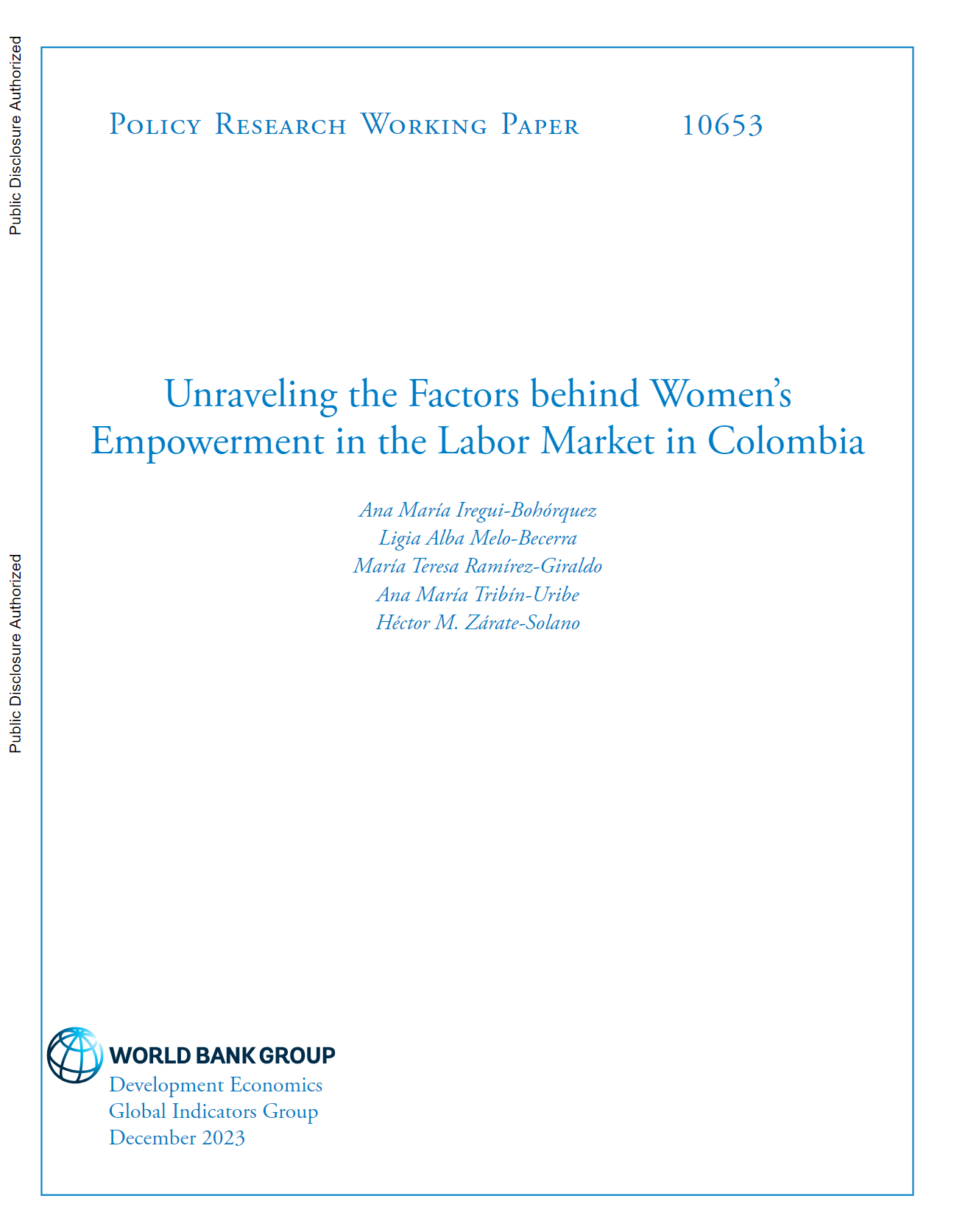Reproducibility Package for Unraveling the Factors behind Women’s Empowerment in the Labor Market in Colombia
Overview
This paper examines the evolution of Colombian women’s participation in the labor market from 1960 to 2018, shedding light on the complex factors that influence their labor opportunities. The study emphasizes the significance of the historical context in understanding these factors. This research uncovers nuanced insights using a two-step methodology involving principal component analysis and time-varying effect modeling. The results indicate that the transition from high to low fertility rates significantly influenced female labor participation until the late 1970s. Educational advancements, economic growth, and changing marital dynamics also played a role in shaping evolving patterns. From 1980 to 1995, factors such as diminishing fertility, declining infant mortality, and varying economic conditions influenced women’s labor involvement. From 1995 to 2010, higher education emerged as a key driver, accompanied by shifting societal norms, and from 2010 to 2018, the period witnessed positive contributions from fertility rates, minimum wage, and male labor participation. This study underscores the intricate relationship between education, demographics, social norms, and economics in shaping women’s labor force participation, providing valuable insights for gender-inclusive policies and promoting women’s economic empowerment.
Reproducibility Package
Reproducibility
Paper exhibits were reproduced in a computer with these specifications:
– OS: Windows 10 Enterprise, version 21H2
– Processor: Intel(R) Xeon(R) Gold 6226R CPU @ 2.9GHz
– Memory available: 128 GB
– Software version: SAS 9.4 on SAS onDemand for Academics
Runtime: 3 minutes
Data
All data are published from every source cited in the book: “El camino hacia la igualdad de género en Colombia: todavía hay mucho por hacer”
by: Iregui-Bohórquez, Ana María, Melo-Becerra, Ligia Alba, Ramírez-Giraldo, María Teresa, and Tribín-Uribe, Ana María.
Description
| Author | Role | Affiliation | |
|---|---|---|---|
| Ana María Iregui-Bohórquez | Economist | Banco de la República | airegubo@banrep.gov.co |
| Ligia Alba Melo-Becerra | Economist | Banco de la República | lmelobec@banrep.gov.co |
| María Teresa Ramírez-Giraldo | Economist | Banco de la República | mramirgi@banrep.gov.co |
| Ana María Tribín-Uribe | Senior Economist | World Bank | atribinuribe@worldbank.org |
| Héctor M. Zárate-Solano | Econometrista Principal | Banco de la República | hzaratso@banrep.gov.co |
This paper is a product of the Global Indicators Group, Development Economics. It is part of a larger effort by the World Bank to provide open access to its research and make a contribution to development policy discussions around the world. Policy Research Working Papers are also posted on the Web at http://www.worldbank.org/prwp. The authors may be contacted at atribinuribe@worldbank.org, airegubo@banrep.gov.co, lmelobec@banrep.gov.co, mramirgi@banrep.gov.co, and hzaratso@banrep.gov.co.
2023-12
Scope and coverage
| Location | Code |
|---|---|
| Colombia | COL |
| ID | Topic | Vocabulary |
|---|---|---|
| C29 | Single Equation Models; Single Variables: Other | JEL Classifications |
| J16 | Economics of Gender; Non-labor Discrimination | JEL Classifications |
| N36 | Economic History: Labor and Consumers, Demography, Education, Health, Welfare, Income, Wealth, Religion, and Philanthropy: Latin America; Caribbean | JEL Classifications |
Disclaimer
The materials in the reproducibility packages are distributed as they were prepared by the staff of the International Bank for Reconstruction and Development/The World Bank. The findings, interpretations, and conclusions expressed in this event do not necessarily reflect the views of the World Bank, the Executive Directors of the World Bank, or the governments they represent. The World Bank does not guarantee the accuracy of the materials included in the reproducibility package.
Access and rights
| Name | URI |
|---|---|
| Modified BSD3 | https://opensource.org/license/bsd-3-clause/ |
Contacts
| Name | Affiliation | |
|---|---|---|
| Héctor M. Zárate-Solano | Banco de la República | hzaratso@banrep.gov.co |
| Reproducibility WBG | World Bank | reproducibility@worldbank.org |
Information on metadata
| Name | Abbreviation | Affiliation | Role |
|---|---|---|---|
| Reproducibility WBG | DIME | World Bank - Development Impact Department | Verification and preparation of metadata |
2024-04-12
1
